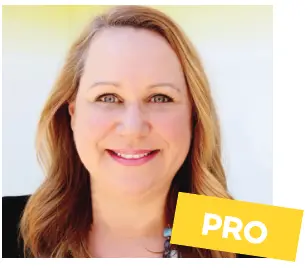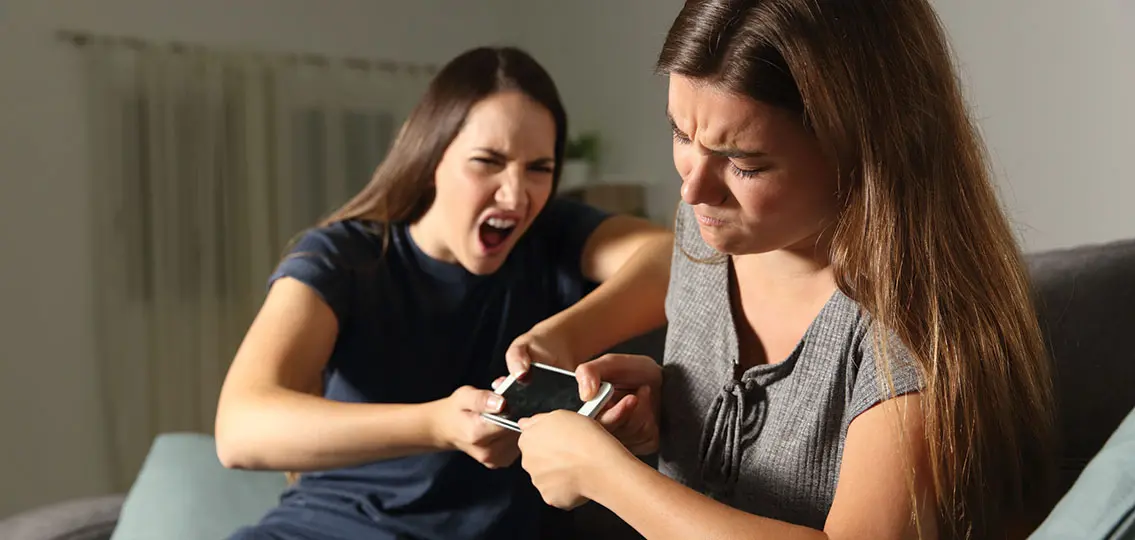What happens when a teen feels one way about a particular issue or problem and the parent has a very different take? At Your Teen, we understand that sometimes you need to look at a problem from multiple perspectives. It can also be helpful to hear from a neutral third party. That’s when we bring in a parenting expert to provide the practical advice you need to bridge the divide and help restore harmony.


If it were up to her, there would be no screen time limits, no set downtimes, and zero rules surrounding where she roams online.
I get it—it’s natural to want to push boundaries at 14. But that’s exactly why parents should limit screen time. The prefrontal cortex is still very much developing. Impulse control is limited. Self-worth is often distorted at this age, and it’s risky (but tempting) for teens to use the number of likes or followers as a yardstick of self-worth.
In an era where children get too little activity and have high levels of anxiety and depression, and where face-to-face interactions are fewer and farther between, I want to raise a child who is confident and healthy, both physically and mentally. It’s my job, then, to set limits on screen time. Because if not me, then who?
Amanda Loudin is a Maryland-based freelance writer and mom of two. Her work appears regularly in the Washington Post, NBC Better, Outside, and many more.

My mother should be able to check in on my phone from time to time, but not constantly limit me.
When parents limit our screen time, we lose the opportunity to learn to self-regulate. When, for instance, I miss a homework assignment because of spending too much time on a screen, I learn the importance of regulating myself.
Another issue that is often used as justification for screen time limitations is the lack of face-to-face interactions. Technology is very popular, but kids still interact face-to-face all the time. It’s not fair to argue that without screen time limitations they won’t talk to one another. Face-to-face interactions are a necessity every day.
Many problems with phones are rooted in how they are used, not the amount of screen time.
Audrey Loudin is a ninth-grade student in Ellicott City, Maryland. When she’s not debating her mother, she enjoys soccer, basketball, and field hockey.

My suggestion is that mom and daughter sit down together and craft a set of rules and limits they both feel comfortable with.
There may be a few hard and fast parental rules that are not up for discussion. Parents should set up some screen limits. That’s as it should be. In my house, phones are always checked in for the night. This is not a popular rule, but it’s a hill I’m willing to die on.
Since Audrey is focused on gaining more freedom, building incentives into the rules can help her get there. Identify a few key areas for improvement—say, maintaining or improving her grades, doing chores without being nagged, or prioritizing sleep—and let her earn the right to have less parental oversight and fewer limits.

Demonstrate responsibility, earn freedom—it’s a pretty simple equation and one Audrey already argued for. Having her input in creating these rules will increase her buy-in, help her feel heard, and reward the type of behavior her mom is looking for both online and in real life.
Julianna W. Miner is an adjunct professor of public health, the author of Raising a Screensmart Kid: Embrace the Good and Avoid the Bad in the Digital Age, and the voice behind the award-winning humor blog Rants from Mommyland. Her work has been featured in The Washington Post, Parents Magazine, The Today Show, and many others. She lives in suburban Washington D.C. with her three kids, two dogs, and one husband.



